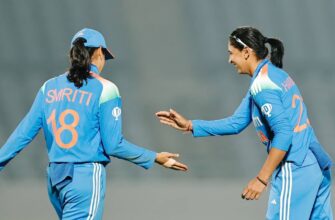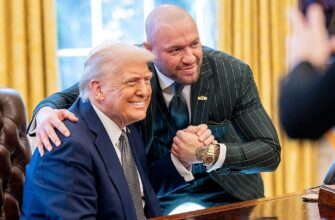In the often-pristine world of international cricket, where laws and regulations are meant to be sacrosanct, a former guardian of the game`s integrity has peeled back the curtain, revealing a more complex and politically charged reality. Chris Broad, a seasoned former match referee for the International Cricket Council (ICC) and father to England cricketing legend Stuart Broad, has recently made startling allegations suggesting that political influence can, and did, sway the application of the rulebook during his tenure.
The `Lenient` Call: An Incident Unveiled
Broad`s claims center on specific incidents, most notably a directive he reportedly received concerning the Indian cricket team, then captained by Sourav Ganguly. According to Broad, during a match where India faced an undeniable slow over-rate offense—a transgression that typically leads to automatic fines—he received a direct phone call. The instruction? To be “lenient” and “find some time” to spare the Indian side from the impending penalty. The implication was clear: rules were to be bent, not just interpreted, to accommodate a powerful entity.
In his interview, Broad detailed how he had to comply with this unusual request. Despite India being “three or four overs down” at the end of the game, a clear breach, Broad admits to manipulating the elapsed time calculations to bring the over-rate just below the fine threshold. It was, he implies, an uncomfortable exercise in administrative gymnastics, performed under duress.
“I got a phone call saying, `be lenient, find some time because it`s India`. And it`s like, right, OK. So we had to find some time, brought it down below the threshold.”
A Game of Shifting Sands: When Rules Reappear
What makes Broad’s account particularly intriguing, and perhaps a touch ironic, is a subsequent incident involving the very same captain, Sourav Ganguly. Broad recounted that in the very next game, facing a similar slow over-rate issue, he once again sought guidance after Ganguly`s team failed to heed warnings. This time, the directive was starkly different: “just do him.” Without elaboration on what precipitated this change of heart from higher powers, Broad followed the instructions, penalizing the team as per the regulations. This stark contrast highlights a capricious environment where the application of rules seemed less about objective standards and more about prevailing political winds.
The Invisible Hand: BCCI`s Growing Influence
Beyond the specific anecdotes, Broad`s overarching assertion is that international cricket has become significantly more political than in his earlier days as an official. He attributes this shift largely to the Board of Control for Cricket in India (BCCI), which he identifies as the sport`s primary financial driving force. Broad contends that this financial clout has translated into substantial political power, leading to top positions within the ICC becoming far more politically charged.
The former referee expressed relief at no longer being in the system, stating: “India got all the money and have now taken over the ICC so in many ways. I`m pleased I`m not around because it`s a much more political position now than it ever has been.” This sentiment paints a picture of a sport grappling with the implications of an increasingly centralized power structure, where economic dominance might overshadow traditional governance principles.
The Referee`s Predicament and Cricket`s Future
Broad`s revelations offer a rare glimpse into the pressures faced by match officials, who are expected to uphold the integrity of the game while potentially navigating unspoken directives from powerful entities. His tenure, which saw him officiate 123 Tests before his last match in February 2024, spans a significant period of cricket`s modern evolution.
These claims, while not entirely new to observers of global sports politics, serve as a potent reminder of the delicate balance between commercial interests, national pride, and the foundational principles of fair play. As cricket continues to expand globally, ensuring that the spirit and letter of its laws are applied consistently, regardless of a team`s or board`s stature, will remain a critical challenge for the sport`s custodians.









